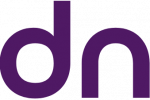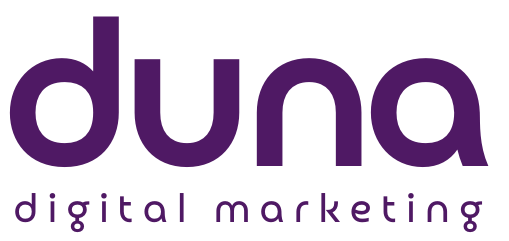Knowing the advantages and disadvantages of social media is important within a company’s marketing strategy.
As social networks have generated new communication, entertainment and business management dynamics, companies that want to stand out must be familiar with these media and use them to their advantage.
However, for this plan to work, it is very important to know the advantages and disadvantages of social media for companies.
Some of the advantages that these platforms offer are interactivity, the variety of formats, or the ease of disseminating ideas or projects at a professional level.
However, on the other hand, social networks show us some drawbacks such as excessive exposure of privacy, harassment situations or fraud attempts.
Given the increasing evolution of the digital world, we must be aware of the advantages and disadvantages of social media to make better decisions regarding their use.

What is social media?
In the business environment, social media plays a fundamental role, with the most known and used platforms, such as Facebook, Twitter, YouTube and Instagram, being widely recognized by the general public.
Each of these platforms has its own peculiarities, but they all share the same purpose: to facilitate the exchange of information and strengthen connections.
In a corporate context, social media has become strategic virtual spaces where companies and brands can establish a memorable and relevant presence.
They provide a means of direct communication with the public, allowing real-time interaction along with the building of genuine relationships.
Social media is no longer just a passing phenomenon. They evolved into a business platform, driven by a massive global presence.
According to a study by WeAreSocial, over 3 billion people are active on at least one social media platform.
The breadth of this audience attracted the attention of companies, which identified a new channel to promote their products and services.
By taking advantage of the massive reach and precise targeting that social media offers, companies have been able to generate new business opportunities and increase brand awareness through social media management.
Learn more: Top 6 Social Media tips for Small Businesses
advantages and disadvantages of social media
Although social media offers a series of advantages for companies, it is important to know what these advantages actually are, as well as their disadvantages.
That way, you’ll be able to make an informed decision regarding your social media marketing strategy.
Let’s see the advantages and disadvantages of social media below:
Advantage 1: It is an amazing means of communication
Social media allows communication through text, chats, private messages and video chats. This multiplies the communication options, while creating new dynamics depending on each resource.
For example, people from different parts of the world can get in touch via Facebook chat, send each other videos on Instagram or do a live stream in real time.
Therefore, social platforms do not know physical barriers and facilitate unrestricted communication.
Disadvantage 1. Increases distraction
Cell phones, tablets and personal computers are distracting if not used correctly.
Social media can be a great ally at an academic and professional level, but we run the risk of ending up consuming content that consumes our time, disrupting our routine.
Advantage 2. Variety of Formats
Social networks have contributed to the development of formats that a few years ago were non-existent.
Today it is possible to attend a class or follow an event live through a Live on Instagram, have access to a tutorial in the form of a post, stories or image gallery.
This is one of the main advantages regarding the success of digital marketing on these platforms, after all, the variety of formats is a great helper when it comes to creating and posting quality content.
Disadvantage 2. Exclusion of disadvantaged people
There are many people who, due to economic difficulties, do not have access to digital devices.
This dynamic, in which social media has become an indispensable tool in certain areas, generates the risk of excluding those who do not have sufficient resources to adapt to new technologies.
This also means that depending on the audience you are looking for your company, they may not use or are not as familiar with social networks, as in the case of an elderly audience, for example.
Advantage 3. New forms of entertainment
Social media has become new forms of entertainment. Videos, memes, chats, video chats, gifs, live streams, short videos are just some of the content we can consume.
Entertainment for all tastes and ages, without the need for many technical resources, in addition to a mobile device with an Internet connection.
Disadvantage 3. Phishing
There are many cases of people creating fake profiles, identical to existing ones, to impersonate them in order to get something in return, from money to confidential information.
This practice poses a risk to the privacy of the impersonator and his contacts, as they are unaware that they are interacting with an imposter account and may provide personal data.
Companies can also be victims of phishing, especially with scammers using the brand’s reputation to promote fake ads, services and products.
Advantage 4. Get Instant Answers
Both for companies and for users, social networks allow expressing opinions, clarifying doubts and making suggestions about products or services in a direct, close and effective way.
The possibility of receiving an answer at the moment favors the communication process on both sides of the screen.
Disadvantage 4. Cyberbullying
Cyberbullying has become an extension of a problem that already existed in the offline world: school and professional bullying.
With this practice, it is intended to humiliate and subject a person to public humiliation, whether through offensive messages or the publication of their privacy.
Although today many platforms have tools to prevent or reduce the impact of cyberbullying, it is a problem that still exists.
Advantage 5. They help you make better decisions
Thanks to social networks, it is possible to read recommendations about places, events, products and services of interest to users.
They are a communication channel where criticism, complaints and criticism can be reflected.
In this way, users can learn about other people’s negative experiences and make better decisions about the place they are going to visit or the product they expect to consume.
Disadvantage 5. Tendency to social isolation
Due to the excessive use of social networks, people spend more and more time alone, immersed in the screen and away from the people around them.
This preference for online activities (games, publications, shopping, etc.) generates an excess of connection that disconnects the individual from his community.
Advantage 6. Access to job offers
Thanks to social networks, it is possible to improve and publicize the professional profile, expanding the possibilities of finding work online.
Networks like LinkedIn, created exclusively for professionals, allow you to display a resume or curriculum vitae.
They facilitate contact with other colleagues, allow you to generate content of interest to the community, participate in groups and, of course, compete for job vacancies.
Disadvantage 6. They can affect mental health
Some of the disorders that excessive consumption of social networks can generate in mental health are addiction and low self-esteem.
The immediacy, the overload of stimuli and the need to always be up-to-date can lead to addiction. This need leads to various problems such as mood swings, sleep disturbances or anxiety.
On the other hand, social networks act as a permanent window into the lives and experiences of others. The tendency to compare the life that is shown on the networks with life in the real world can generate feelings of frustration that directly affect self-esteem.
Advantage 7. Greater professional projection
Social networks help to generate greater impact and reach in professional projects.
Anyone who wants their idea or project to reach a larger number of people can rely on social networks and the resources they offer.
Today, it is very common to see specialists in an area on networks offering lectures, tips, practical tools, tutorials, conferences and other content in different formats (posts with text and images, infographics, videos, etc.).
Disadvantage 7. Influence the reputation of companies
Mismanagement of a company’s social networks can affect the digital image and, consequently, the company’s reputation.
The networks, together with the organization’s website, act as a letter of introduction in the 3.0 world. A bad customer experience in the digital environment can be transferred to a brand experience in the offline world.
Advantage 8. Meet people with common interests
Through social networks it is easier to meet people with interests similar to ours.
Whether you want to share a hobby, have a romantic date or participate in a social gathering, there are many options to meet people with the same tastes and interests.
Disadvantage 8. Use of personal data
There is some controversy about the existing privacy policies on social networks, and the use that companies make of their users’ data.
Through permissions to access personal information, a huge database is generated which is used for advertising purposes.
Each application can request different permissions, and almost all of them agree to request access to images, location, phone data, phone contact list, among others.
Facebook was bound to use its users’ data without confidentiality and without respecting privacy policies.
Other companies, Facebook collaborators, also have access to this data, so users have no real control over it.
Learn more: Grow a Small Business in Calgary with the best 5 Strategies
Advantages of each social network
After learning the main advantages and disadvantages of social media, in a personal and corporate context, it’s time to know the advantages of each platform.
Find out which are the most used social networks in the world and how you can start taking advantage of their potential right now:
This is the number 1 social media in the world. You can find anything you want on Facebook. Virtually all brands and most people online in the world have an active profile on this network.
The Facebook Feed has a constant presence of brands and many user posts. Hence, it is a good showcase to increase brand awareness and build a good reputation.
With great social media management and quality content, Facebook can be the most effective tool for your company’s digital marketing, standing out among all other platforms.
- YouTube
YouTube is the biggest video platform on the planet, and besides, it still serves as a powerful search engine, second only to Google.
This platform is always on the rise, and no wonder. A large part of why this is is due to the increasing expansion of video content in digital marketing. This means that the platform goes far beyond pure entertainment.
Many people started to see a YouTube channel as a source of income, while companies found a place to advertise their services and products, both through advertisements and through videos.
Instagram, a platform dedicated to visual resources combined with texts, provides an environment where individuals and brands can genuinely reveal their identity through images and videos, transcending personal and professional scopes.
This social network has a distinct focus on interactivity between people and businesses, encouraging responses, comments and “likes”, among other various forms of engagement that enrich the user experience.
In addition to being a space for connection, Instagram has emerged as a significant commerce arena for businesses, including those that operate exclusively online.
Even for brands without a physical presence, the platform offers substantial opportunities to drive sales and expand the customer base.
From a business point of view, Instagram shines as a prime tool for visually presenting products and services, either through the traditional Feed or through assertive advertising strategies.
The ability to visually display the attributes of a product or service allows companies to captivate their audience in a unique way.
One of the biggest highlights of Instagram is the Stories feature, which makes it possible to share dynamic content.
Companies can take advantage of this feature to present more fluid and authentic aspects, such as behind the scenes of their operations or the daily life of the team, adding a personal touch to the brand and creating a deeper connection with the public.
LinkedIn is the world’s largest networking platform. Its use has become essential for professionals from different sectors, as well as for companies and recruiters looking for new talent.
Plus, it’s a great hub for professional connections and career building.
On LinkedIn, you can find a new job vacancy, turn your profile into a showcase of your professional experiences and find experts in your field to learn or exchange ideas.
Learn more: What does a social media management do?
Twitter, while not as widely used as the other platforms mentioned here, still has its place.
This social network works as a great news channel and quick dissemination of information.
Even if it is not the most complete social network for a company’s social network strategy, Twitter can be used if it is within a well-thought-out plan.
Pinterest can be analyzed from two perspectives: as a visual inspiration platform or as a social network.
Basically, it is an image search network, which also allows the user to create their own folders and interact with other people.
Despite the success for personal use, Pinterest’s tools are unknown by many brands, who still underestimate this platform.
To boost your brand through Pinterest, there are a series of SEO practices so that your brand’s content is relevant among searches. If done well, the brand can become a great visual reference on a certain topic.
WhatsApp has more than 2 billion users worldwide. This is a result of the practicality and instantaneous of the most popular social messaging network today.
WhatsApp is part of many people’s routine. It can be said that currently it is one of the easiest ways for us to communicate with other people, and this can also happen in business.
Through WhatsApp Business, the relationship between consumer and brand has become even more concrete and should reach a level to make them even more professional.
The corporate option also offers statistical features such as other networks and basic company information — such as contacts, time and location.
Conclusion
Finally, when it comes to the advantages and disadvantages of social media, the main thing is to know that it is up to the individual to use social networks well or badly.
In fact, these platforms are excellent communication resources and should be used responsibly and strategically, especially for companies.
By recognizing the possibilities that social media offers, you can begin to craft a more effective marketing plan.
To enjoy all the advantages of social networks and avoid their disadvantages, it is extremely important to manage social networks well with trained professionals.
Get to know the services of DUNA’s Digital Marketing Agency and get more advantages in your social media marketing strategy!

